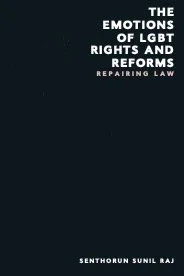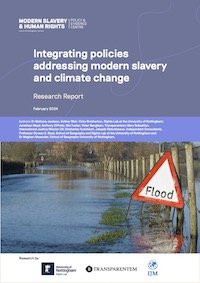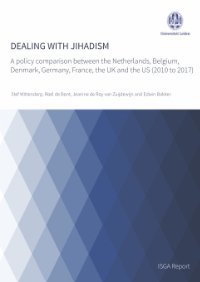By Sunder Katwala, Jill Rutter, and Steve Ballinger
The asylum system is failing. In 2022 a total of 45,756 people made the perilous journey across the Channel, up from 1,900 in 2019. At least 50 people have drowned or are missing, including 32 people who died when a boat capsized in November 2021. Criminal gangs are profiting from people’s desperation. Those who arrive in the UK face lengthy delays in processing their asylum applications. At the end of September 2022, just 7% of asylum applicants were processed within six months and 120,300 people were waiting for a decision on their initial application1. Unable to work while their decisions are processed, asylum seekers are left in unsuitable and expensive accommodation for months or sometimes years. This is unfair to asylum-seekers and costly to the taxpayer, with the bill for emergency hotel accommodation currently amounting to £5.6 million per day2. Moreover, the Home Office is failing to remove people whose asylum claims are refused, with just 816 voluntary and enforced removals in 2021, compared with 10,489 ten years previously3. Politicians must now prioritize reforms to build an asylum system that is controlled, well-managed and fair. The UK-Rwanda scheme is not the answer. It is wrong in principle, as it removes people without hearing their cases. It is also costly to the taxpayer and will not achieve its aims in practice. We believe, however, that there are constructive alternatives for asylum reform – measures that can secure broad consensus across parties, with civil society, and among most of the public. We propose an orderly, workable, and humane alternative reform agenda, comprised of the following elements: 1. Asylum policy should uphold Britain’s values, traditions, and international obligations to protect refugees. This means we reject proposals which violate the principles of a fair hearing for every case; or which break with the spirit and letter of our international commitments under the Refugee Convention. 2. Put in place a streamlined process to make fairer and faster asylum decisions. The Home Office should invest sufficient resources in a reformed asylum system, with a new strategy to triage initial applicants, simplify country guidance, and meet targets to make most decisions in six months. A fast-track process to refugee status for the strongest cases should also be introduced, together with a streamlined appeals procedure. 3. Hire a task force to tackle backlogs. With an individual target of processing four asylum cases each week or 100 asylum claims in six months, 1,000 temporary Home Office posts would be needed to eliminate the asylum backlog in six months, at an approximate cost of £60 million. With emergency hotel accommodation costing the Home Office £5.6 million each day in October 2022, this move would pay for itself within a fortnight, eliminating the need for hotels by freeing up dispersal accommodation. 4. Safer arrivals through a new humanitarian visa to come to the UK. This should be made available to people who have family or other close links to this country and issued in a select number of UK consulates in countries of transit. Parliament should set an annual quota for people admitted through this route, which would run alongside the UK Resettlement Scheme and community sponsorship, as well as refugee family reunion visas. 5. Adopt a policy of ‘comprehensive cooperation’ with our allies to tackle smuggling and irregular migration. The Government should seek enhanced cooperation with countries of transit and safe countries of origin. It should seek new and more comprehensive UK-France and UK-Belgium agreements, covering security, police cooperation, returns, and systems to share responsibility for people who do not qualify for asylum. The Foreign, Commonwealth, and Development Office should also support refugees in countries of transit such as Lebanon and Turkey, enabling them to support themselves there rather than travel across Europe. The UK Government should build on the agreement it signed with Albania in 2021 to allow the return of people who are not authorized to remain in the UK. It should also seek further return agreements with safe countries of return such as Bangladesh, Georgia, India, Nepal, and Nigeria. Safe countries of return should also be supported through the British overseas aid budget to enact programs to reduce irregular migration flows. 6. Ensure more and safer returns. The government should significantly increase the number of voluntary returns, reintroducing independent advice for those refused asylum, along with faster removals for irregular entrants whose asylum claims are refused. 7. Promote integration through ‘welcoming hubs’ that increase social contact between newcomers and receiving communities and help refugees to rebuild their lives and flourish. There is a public appetite to play a part in welcoming refugees. Faith and civil society organizations should harness this and set up local welcoming projects for asylum-seekers and refugees. More volunteers could be involved in activities such as English language conversation clubs and sports, offering advice and mentoring. Welcoming hubs should offer such community contact activities to asylum-seekers, refugees, and those on humanitarian visas, as part of a proactive approach to civic contact, integration, and citizenship. 8. Help more refugees to work. English language classes should be accessible in all parts of the UK so that refugees have the skills they need for work. Employment support should be better tailored to meet refugees’ needs and practical partnerships with employers should be strengthened. This will help more refugees to find work and enable them to make their contribution to our economy. 9. Sufficient and fairer funding to enable Home Office targets to be met rather than forgotten, through investment in an effective asylum system, reducing backlogs, and providing access to affordable English language classes in colleges. The dispersal of refugees across the UK should be based on a clear set of principles, with a fairer distribution of people and funding across regions and nations of the UK. Local authorities (and communities) should be consulted about new arrivals. 10. Stronger democratic accountability and public voice in asylum. An annual Immigration Review should be presented to Parliament, which should include a transparent review of asylum, refugee, and resettlement policy. The public should be involved in this review, through a well-organised engagement exercise that reaches people whose voices are not usually heard in consultations. Past experiences show that where communities are consulted about asylum dispersal accommodation and can ask questions, this process often unlocks public consent. The views of local communities should also contribute to this annual review and to plans to house asylum-seekers in their neighborhoods.
London: British Future, 2023. 48p.






